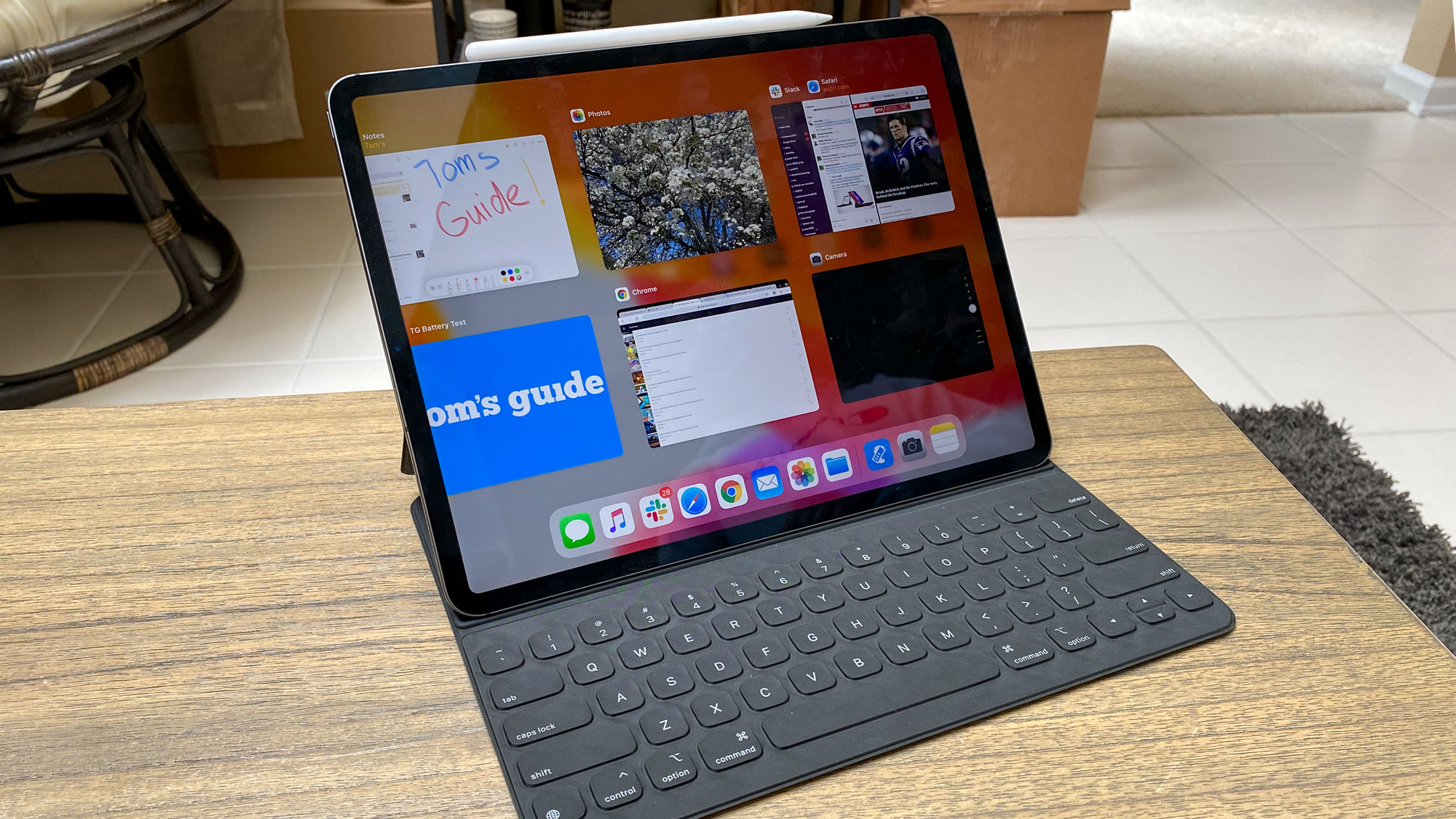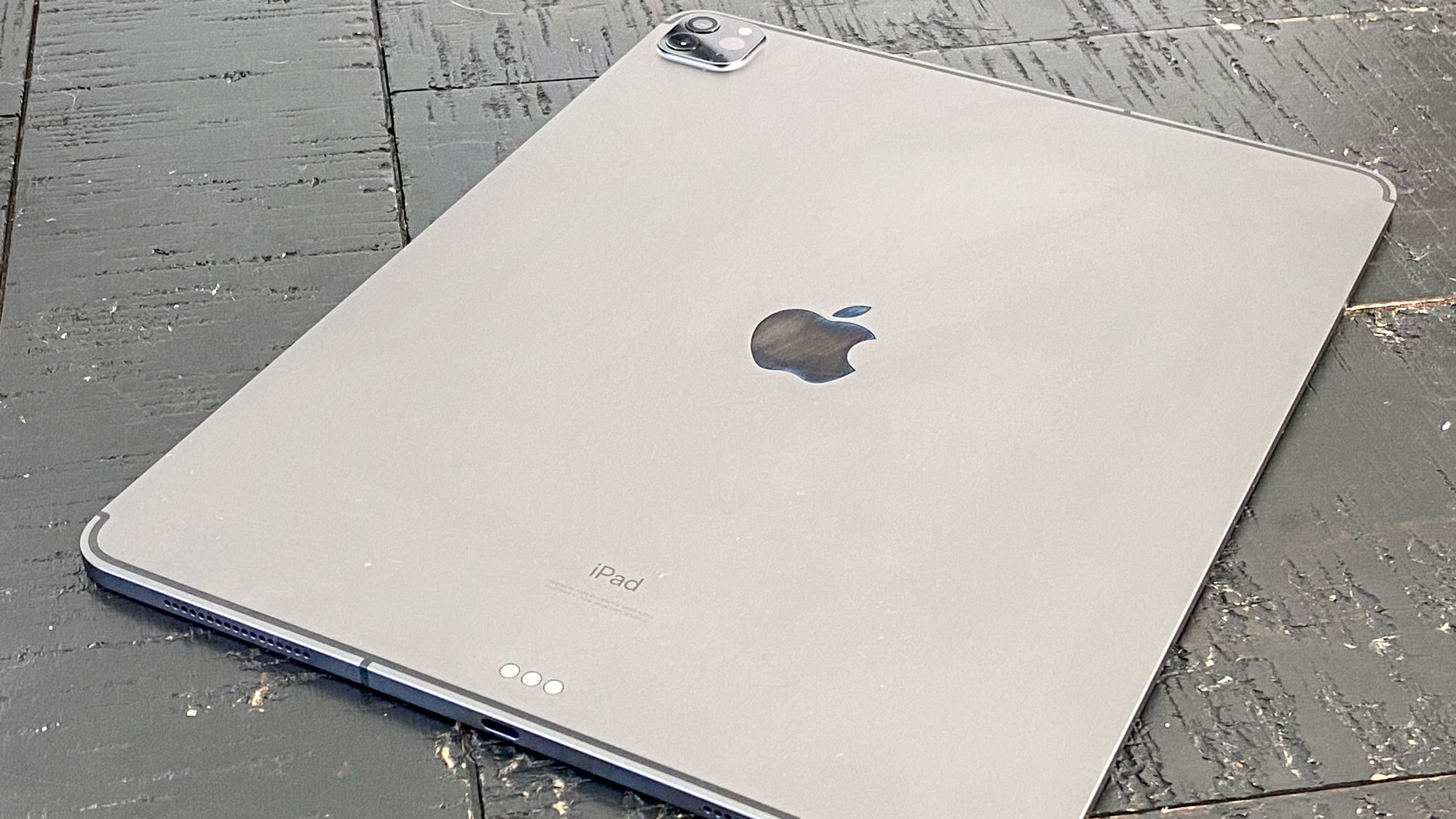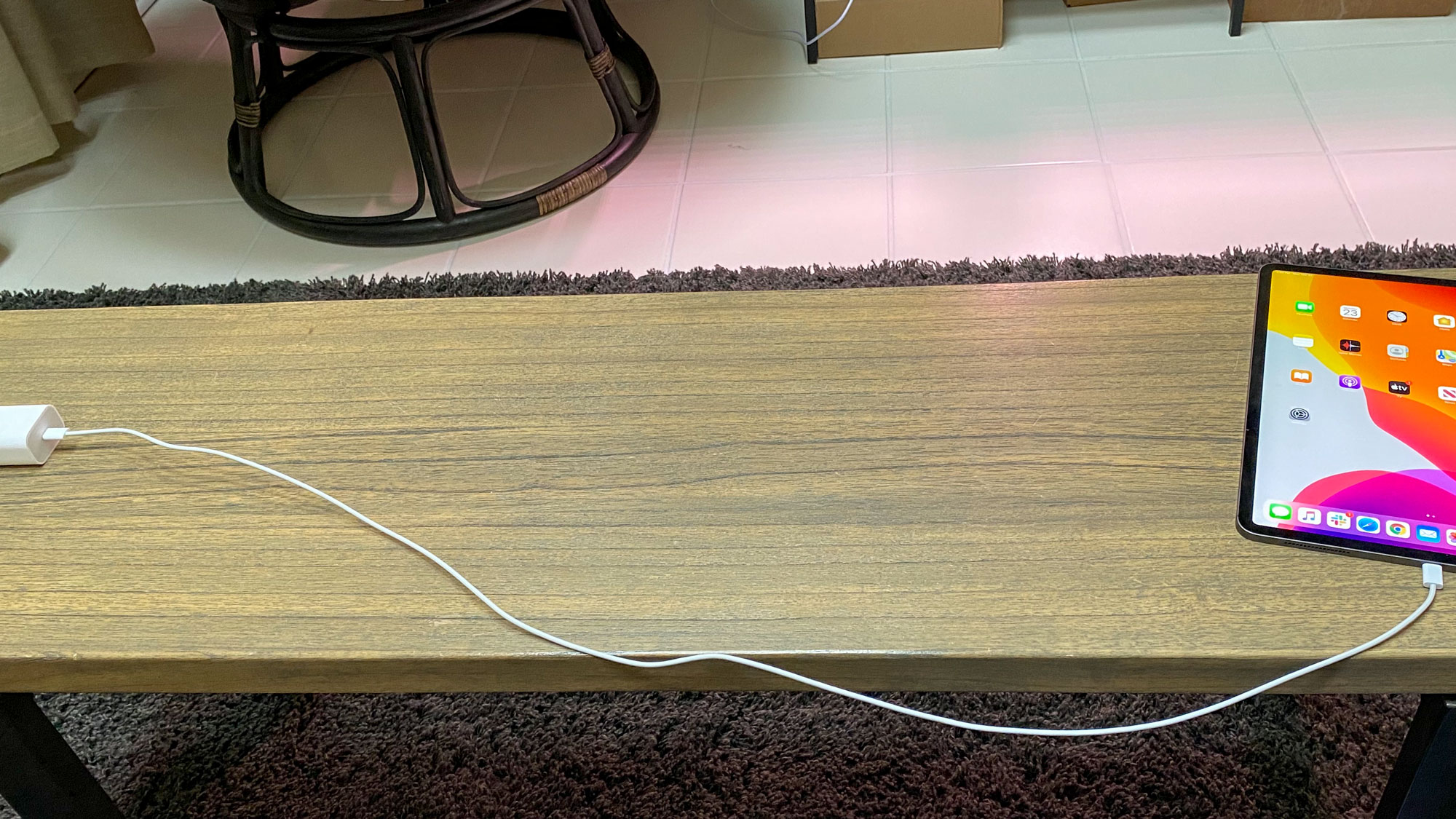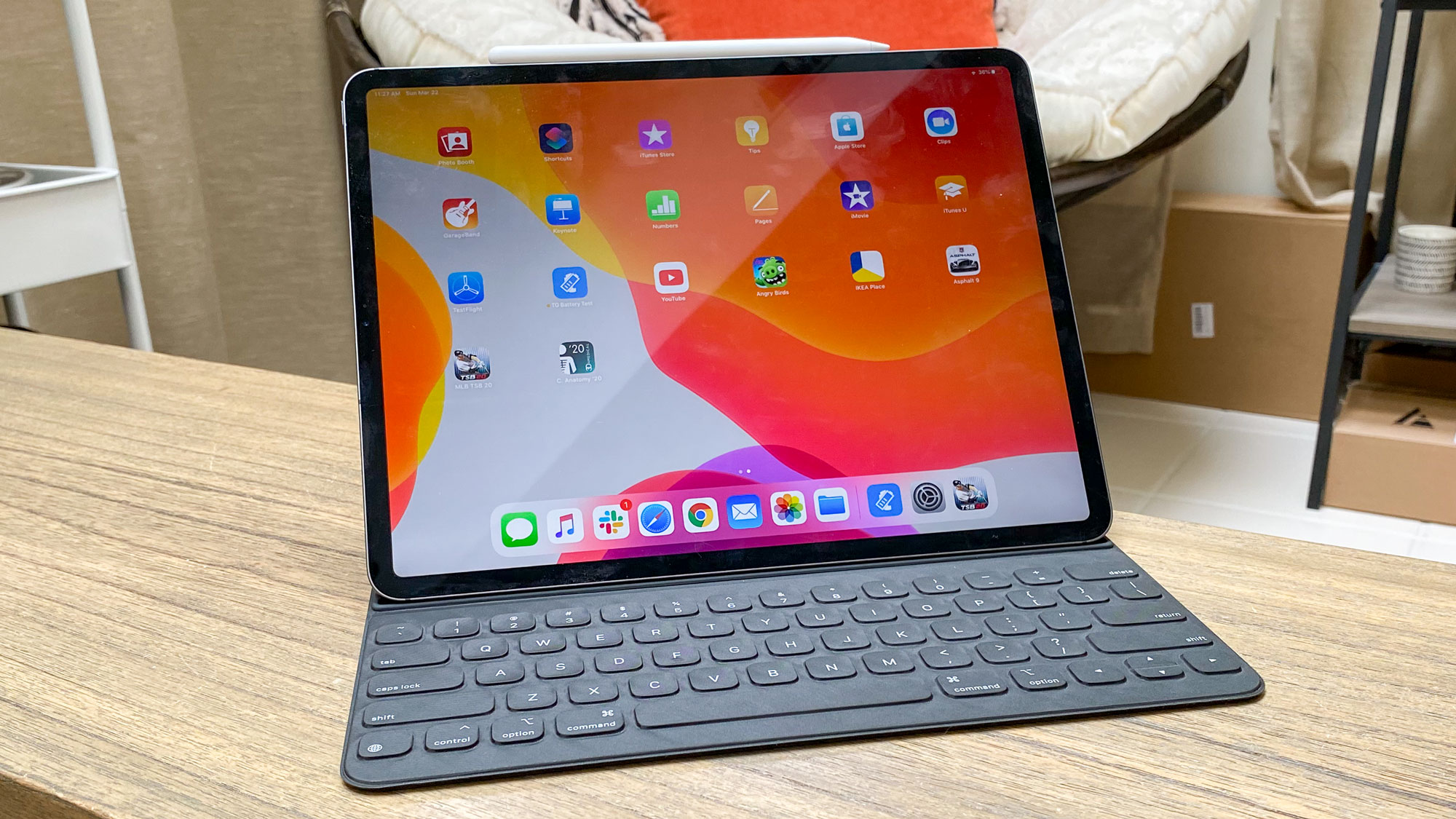5 reasons the iPad Pro 2020 won't replace my laptop
The iPad Pro is the closest Apple has come yet to a laptop replacement, but it's not close enough.

The iPad Pro 2020 has all the makings of a laptop replacement. It finally offers cursor control across the operating system; there's a Magic Keyboard on the way that puts the current Smart Keyboard Folio to shame; and iPadOS has really come into its own when it comes to multitasking.
I'm most excited about Apple's new Smart Keyboard, which arrives in May. It finally brings a good Apple keyboard to the iPad with the same scissor-style mechanism as the new MacBook Air and 16-inch MacBook Pro, a backlit lit layout and — most important — a built-in trackpad.
- iPad Pro vs MacBook Air: What should you buy?
- How to watch Star Wars: The Rise of Skywalker online and on Blu-ray
- Just in: iPhone 9 may launch April 15 based on new leak
Another plus? The iPad Pro will sport a cantilever design that will let you adjust the viewing angle up to 130 degrees. However, even with all of these reasons to be excited, I'm not ready to replace my MacBook Pro with an iPad Pro. Here's why.
1. The browsing experience is way too limited
As someone who uses Chrome as his daily driver for surfing the web, it's sad to see this browser look like a stretched out phone app on a 12.9-inch screen. For example, I only see one column of data instead of two when using the Parsely website to check Tom's Guide's real-time traffic.
Worse, there's no bookmarks bar available in Chrome for iOS, which is a huge time-saver for me and millions of other users. There's certainly enough real estate for it on a 11-inch or 12.9-inch display.
Another bummer is that I can't directly edit Google Docs in the browser; instead, I have to jump over to the Google Docs app, which doesn't present nearly as many tools in the main view as the browser does. It just takes too much work to get my daily work done with the iPad Pro.
2. Too few ports and no Thunderbolt 3

And you thought the MacBook Air had a small number of ports. The MacBook Air and the entry-level MacBook Pro both features two Thunderbolt 3 ports, while the iPad Pro has a single USB-C port. The Magic Keyboard adds a second USB-C port for pass-through charging, but even then you'll be left with a single USB-C port.
Sign up to get the BEST of Tom's Guide direct to your inbox.
Get instant access to breaking news, the hottest reviews, great deals and helpful tips.
The lack of Thunderbolt 3 support built into the iPad Pro means that you'll have to pay extra for an adapter to connect to a larger display. I can't simply plug the iPad Pro into my USB-C hub that's connected to my 4K LG monitor; I get an error message that says that the iPad Pro doesn't support Thunderbolt 3 accessories.
3. Very short power cable

The iPad Pro comes with a power cable that's just 1 meter long, which is about as long as what comes with the iPhone 11. That is ridiculous when you're trying to work from home and need to be on top of a power outlet to keep your laptop replacement juiced.
Yes, the iPad Pro offers more than 10 hours of battery life in our testing, but you should be able to plug in from a moderate distance without have to spring for additional longer USB-C power cable ($19).
4. Limited storage versus MacBooks
The iPad Pro starts with 128GB of storage, which is half of what Apple offers for the MacBook Air in 256GB. Granted, the iPad Pro is a different class of device and there's a presumption that users will rely more on iCloud for storage. But I still think it's lame to get half as much storage for the same price.
5. Very pricey with accessories

The iPad Pro 12.9-inch starts at $999, but that quickly goes up when you start adding accessories. If you buy the Magic Keyboard, the total suddenly balloons to $1,349, which is $350 more than the MacBook Air and $50 more than the entry-level MacBook Pro 13-inch.
The Smart Keyboard Folio for the iPad Pro costs a more reasonable $199, but I don't like the keyboard on that accessory and it doesn't have a trackpad.
And that's if you don't go for the Apple Pencil, which costs $129 and brings the total to $1,478. Want more than 128GB of storage? That'll be $100 more for 256GB. At least the iPad Pro offers built-in cellular as an option, but that's another $250 and you don't get 5G. I'd rather use my phone as a hotspot.
Bottom line
It's clear that developers are still figuring out how to optimize their apps for the new iPadOS 13.4, which is why I won't dwell on the fact that text selection doesn't yet work in Google Docs or Microsoft Office for the iPad. That stuff will come. But I'm not so confident that the browsing experience will be more desktop-like, either from Safari or Chrome.
Apple also needs to do a better job recognizing when a keyboard is attached and react accordingly. If I'm on the home screen, I should just be able to start typing to find an app. Add in the price of the iPad Pro 12.9-inch with accessories and other limitations versus laptops and I'm happy to stick with my MacBook Pro for now.
Mark Spoonauer is the global editor in chief of Tom's Guide and has covered technology for over 20 years. In addition to overseeing the direction of Tom's Guide, Mark specializes in covering all things mobile, having reviewed dozens of smartphones and other gadgets. He has spoken at key industry events and appears regularly on TV to discuss the latest trends, including Cheddar, Fox Business and other outlets. Mark was previously editor in chief of Laptop Mag, and his work has appeared in Wired, Popular Science and Inc. Follow him on Twitter at @mspoonauer.
-
MikeMJB Mark Spoonauer, allow me a few rebuttal points, please. Regarding the browser experience. I can't understand your problems with editing Google Docs in the iPadOS desktop class Safari browser. I store my Google docs on Google Drive. I can edit and create those docs in my Safari browser - as long as I have an internet connection. Furthermore, prior to Apple releasing this iPadOS Safari browser, I could not create or run macros in those documents. The iOS Google Doc app doesn't allow macro creation or execution Google files while opened in that iOS or iPadOS Google Doc app. However, as I stated, while online, those Google Office files can be opened, edited and saved to Google Drive. The ability to execute macros while online thru the new Safari browser version was a great addition.Reply
Another point to make. Although I don't use the iOS or iPadOS Chrome browser, I do use the new Microsoft Edge browser optimized for ARM (based on Chrome) that does include easily accessed bookmarks (MS calls those "Favorites".) And I can open quite a few tabs without adverse effects in my 2018 12.9" iPad Pro third generation model - even when I am multi-tasking a video stream in a small "corner window" and doing other tasks with open apps.
Regarding "too few ports" and the lack of Thunderbolt 3 ports. Well, I can't argue about the lack of Thunderbolt 3 ports on the iPad Pro models. However, they do have that single USB-C port that does allow iPad Pro dedicated mini-hubs which solve the port issue. For example, I use that HyperDrive USB-C mini hub that attached directly to the iPad Pro and that hub offers the following additional ports. A USB-C charging and data pass thru port, a HDMI plus mini and standard SD card slots, a USB 3 port and a standard phone jack. With the soon to become available Magic Keyboard with trackpad option, an additional USB-C data and charging port will become available.
About that "very short power cable". Hmm, a nearly 4 foot cord is usually long enough. It is for me. However, Apple and other vendors offer charging cables of greater length. I've read that a specialty vendor supplies a cable that is 100 yards in length. (Well, not really. Grin)
Your Limited storage objection is - really?!! Come on, Mark. That is hardly an issue for the latest iPadOS tablets . On my 512GB iPad Pro, I have 420 apps installed. (I know - over kill). However, after almost two years worth of use, I still have 438 GB available for files. What with online storage and external data storage that iPadOS now utilizes, I suggest 256 to 512 GB of storage is "storage enough" for an iPad Pro - even if the iPad Pro is used in place of a laptop.
Can't argue with the high price of Apple accessories. However, my 4 year old Magic Trackpad 2 (which I originally purchased for my iMac) is still going strong and works great with the iPadPro updated to iPadOS 13.4. The point is, Mac Accessories usually last and work a VERY long time with out issues. So far, my Apple Pencil 2 and iPad Pro keyboard folio cover are still in perfect condition. You get what you pay for.
When it comes to Office Apps, Graphic Drawing and Photo Apps and 3rd party dedicated iPadOS and iOS apps in the App store ecosystem - I have found them to be at least and rarely better than their macOS desktop apps.
Personally, I currently use a 2018 MacBook Air (retina) with a Blackmagic eGPU along side my 2018 iPad Pro. I don't consider either a "stand alone" computer that I could do all my tasks on by itself. I believe in the greater synergy of those two devices acting tougher. Can't really beat Sidecar technology - IMO, it beats Luna Display and I was a heavy user of Luna Display. (Luna Display does have some software advantages with working with Photoshop for macOS, for example.) But form a reliability viewpoint and assessment, Sidecar is better.
Anyway, I don't intend to only use an iPad Pro myself but the distinction that it is just a "consumption" device (where that connotation is often used as a negative asset), well, that distinction is no longer valid. The only liability that can legitimately be hurled at the current iPad Pro models is that they can't run x86 coded apps. And to that I can only say - so what! very big grin. -
Nofansneeded Your reasons are stupid.Reply
1- Who cares about Google chrome ??!?? Google docs ? really? USE MS Office 365 and stop going cheap .
2- few ports ? no Thunderbolt ? for what exactly ? use wireless devices . and get a hub for more USB ports.
3- Length of cable ? really ? buy a longer one , OR even better , the IPAD Pro has very long battery life and fast charging , what cable ?
4- Lower storage at same price ? Wrong , that price difference goes for the superior Camera a notebook will never have .. it is more price because it has a $200 worth CAMERA SETUP FRONT AND REAR ...
5- very expensive accessories ? NOT NEEDED. -
RandomFlux Whether or not the iPad Pro is a replacement for your computer depends on your use case. I do semi-professional photography and I got 2020 iPad Pro 12.9 512GB with the Pencil to see if I could do serious photo editing on it. I returned it after a week because an efficient workflow simply wasn't possible, and it was too expensive to just use as an iPad.Reply
The problems for me were with the apps and reliability of working with external storage.
So far, the only layer-based photo editing app on the iPad worth considering is Affinity Photo. In many ways it's an amazing program and many of its tools are terrific. However, it cannot even save export presets for a single file, and there is no batch export for projects. So exporting multiple files means exporting every single image manually, re-selecting ALL the settings for every single image and navigating all the way down to the place you want to save because Affinity remembers none of these things. Doing that for a project containing a hundred or so images is simply ridiculous. It's just not going to happen; I cannot take a program that works like that seriously. In addition to that Affnity is a storage hog: every single edited 24MB RAW photo inexplicably took up between 350MB and 400MB, even without the history stored with the photo. These are just two examples of stumbling blocks in this app. There were others, and Affinity Photo is already at version 1.8x, so it's not like these are just teething troubles. The Serif staff also seemed generally unresponsive and dismissive of such issues in support.
Then there were the external storage issues: All the larger Affinity files I transferred to an external hard disk over to USB-C for backup with the iPad Files app were corrupted and non-readable. This was a fast eFat spinning disk drive that works fine on all other devices and systems, Windows, Mac and Linux alike. The iPadOS system didn't even know it was mangling the files. No error messages, nothing. Similarly, over 30% of all images exported directly to the hard disk by Affinity were corrupted and either unreadable or damaged with artefacts in the images. I realize that this probably has to do with this specific hard drive, but if the OS can't see that it's having trouble with a drive and just writes corrupt data instead that is a show stopper for me.
Add to all this the fact that working on the iPad means no plugins and no access to the entire range of photo editing tools available elsewhere and the whole thing starts to look mightily unattractive, despite the admittedly wonderful experience of working on images on the great screen with the excellent Pencil.
So for me, with high-end photo editing as my target, the iPad is definitely not there yet. It's still a wonderful device and for many other things it definitely IS already there. For writers and journalists and many others it's pretty much the ideal device already. Heck, if your photo editing needs are less demanding it's already a wonderful photo editing platform, with many simpler programs like Pixelmator, Snapseed, VSCO and others providing excellent performance.
As always, it really depends on what you need. I can't do without all my heavy-iron photo editing applications. Many others can and are already using the iPad as a full replacement. I wish I could too, but I just can't. At least not yet.

